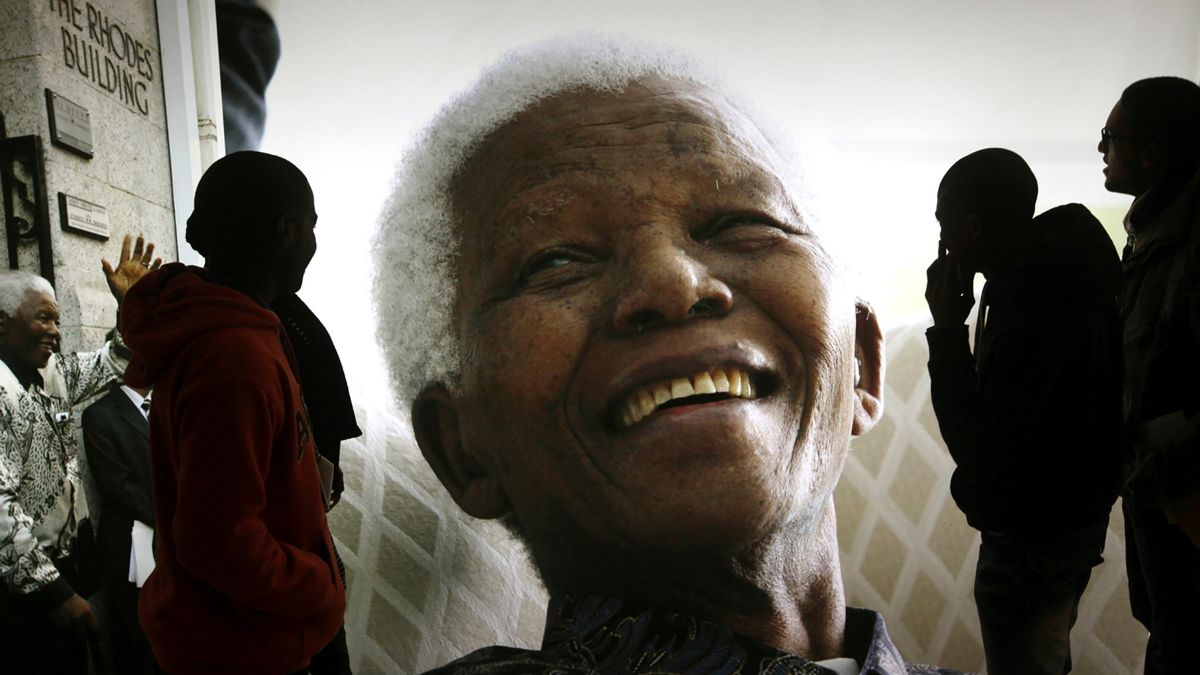For years, the African National Congress (ANC) transcended mere politics in South Africa. It stood as a movement committed to liberating Black people from the grip of white minority rule and dedicated to the noble ideals of democracy, equality, and a brighter future for all South Africans.
Once revered under the guidance of Nelson Mandela and hailed as a symbol of hope by the Black majority after the end of apartheid in 1994, the ANC’s image has been tarnished by soaring unemployment rates, pervasive poverty, the breakdown of certain government services, and over a decade of corruption scandals, leading many voters to feel disenchanted.
With the South African elections next week, the ANC may just lose majority for the first time in its history, jeopardising the political legacy of a global personality and Nobel Laureate.
We take a look at how free South Africa’s most renowned party has gone astray from the path it had once defined.
South Africa’s struggle against unemployment, poverty under ANC
While the end of apartheid granted every South African the right to vote and other fundamental freedoms, the ANC faced the challenge of translating these liberties into a better life, particularly for the Black majority who had long been oppressed.
Despite some initial success under Mandela in improving living standards during its first decade in power, the ANC government has struggled to sustain these gains.
Also Read: 30 years of freedom, how South Africa tore apart the shackles of apartheid
Impact Shorts
More ShortsToday, South Africa grapples with one of the world’s highest unemployment rates, enduring inequality, and widespread poverty, which disproportionately affects Black communities. These issues have fueled much of the criticism of the ANC’s three decades in leadership.
The ANC has often cited the challenges of undoing nearly five decades of apartheid’s racist laws and centuries of European colonialism, which kept millions in poverty. The party asserts that South Africa is indeed a better country than it was under apartheid, a claim that holds true.
However, for many South Africans in 2024, the most urgent problems stem from the government’s failure to provide basic services. Communities nationwide frequently protest against the lack of electricity, inadequate water and sewage systems, mounting garbage on streets, and a severe shortage of proper housing that forces millions to live in shacks.
ANC and corruption
Despite roughly half of South Africa’s 62 million people living below the poverty line, according to the World Bank, ANC officials have been implicated in numerous corruption scandals, enriching themselves at the expense of the populace.
Corruption reportedly escalated under former South African President Jacob Zuma, who allegedly allowed a decade of widespread graft before stepping down in disgrace in 2018.
There were numerous accounts of malfeasance, with politicians allegedly receiving bribes for influence or lucrative state contracts, as corruption permeated all levels of government. South Africans learned of senior ANC figures allegedly using funds for expensive suits, extravagant parties, or renovating their homes.
Cases like the disappearance of $15 million earmarked for removing harmful asbestos from poor people’s homes incensed the nation. Incumbent President Cyril Ramaphosa pledged to cleanse the ANC when he succeeded Zuma, but he faced his own scandal and survived an impeachment vote, further tarnishing the party’s reputation.
Infighting within ANC
The ANC has been plagued by internal strife since Mandela stepped down as president in 1999 after one term, passing the torch to a younger generation.
His successor, Thabo Mbeki, was ousted as Zuma undermined his leadership within the ANC. The party later turned against Zuma, who is ineligible to run in the upcoming election , as corruption allegations mounted.
Since assuming office in 2019, Ramaphosa has grappled with a faction of the party still loyal to Zuma. While the ANC once prided itself on being a “broad church” of individuals dedicated to freedom and democracy, it now resembles many other political parties with internal factions, hindering its ability to address South Africa’s challenges.
The future of ANC and Mandela’s legacy
Having once held a commanding 70 per cent of the vote, the ANC has seen a gradual exodus of supporters, particularly among a new generation of South Africans who did not experience apartheid.
The upcoming election is anticipated to be a pivotal moment for South Africa’s post-apartheid democracy, with recent polls indicating that ANC support is below 50 per cent, suggesting it could lose its parliamentary majority for the first time.
While the ANC is still expected to be the largest party, falling below 50 per cent would necessitate governing alongside other parties in a coalition.
This would mark the most significant political shift in South Africa since the ANC assumed power and a humbling moment for a party that Zuma once proclaimed would govern “until Jesus comes back.”
Also Read: Who is Jacob Zuma, the former South African president, disqualified from next week's elections?
With inputs from AP


)

)
)
)
)
)
)
)
)



